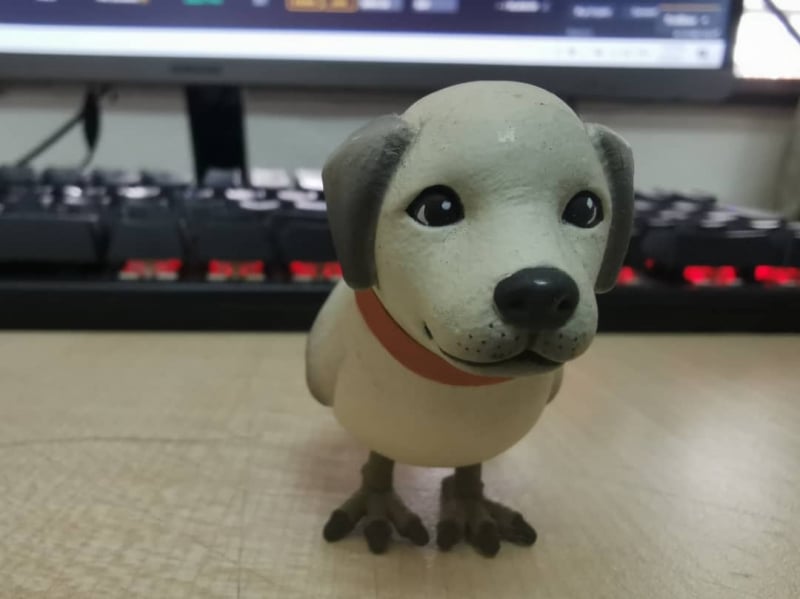Be it the captivating storylines or the swoon-worthy chemistry between the main characters, K-dramas are the epitome of entertainment these days. For many of us, apart from providing a good avenue to relax and unwind after a busy day, K-dramas have also introduced us to the kaleidoscopic facets of life in South Korea and even the language itself, including Korean curse words!
Here are the 10 most common curse words and rude phrases you’ll hear in K-dramas. For educational purposes only of course!
1. Sshi-bal 씨발
I’m sure some of you already know this one by heart! After all, it is arguably one of the most common Korean curse words in South Korea! Simply put, the word means “f*ck” and while it may SOUND cute to some of us, to native speakers, this is actually an extremely rude expression.
Depending on the age-rating of the K-drama you’re watching, you’ll either hear characters explicitly uttering the phrase or a watered-down version like “ah yi sshi…” which is basically like “ah ffff…”. While I admit that it’s sometimes therapeutic to use this expletive when alone, I’d recommend not using it in public, especially when you’re visiting South Korea!
2. Gae-sae-kki 개새끼

Another combination of Korean curse words that we sometimes hear is gae-sae-kki which means “son of a b*tch”. Again, whether or not you commonly hear this phrase depends on the age rating of the K-drama in question. Sometimes, K-drama characters use the phrase but omit the word gae. In this instance, the word has a slightly more positive connotation, just like how you may call some of your closest friends names. This is also the version that we hear more often and it can also mean “jerk” or “bast*rd”.
Fun fact: the word gae means “dog” in Korean while saekki when joined together means “offspring”. However, the word sae on its own means “bird”. In some souvenir shops in South Korea, you’ll be able to buy this peculiar dog-bird statue (hmm, I wonder what they mean!). They do seem like good souvenirs for people you find annoying though, just saying -wink-.
3. Mi-chin nom(nyeon) 미친 놈(년)
This phrase is most often used in adult-rated K-dramas or movies. That should already tell you how rude or derogatory this term can be. Split apart, mi-chin simply means “crazy” while nom/nyeon means bast*rd/b*tch respectively. Joined together, the phrase means “crazy bast*rd/b*tch”. While it doesn’t sound like the worst insult you’ve ever heard, in cultural context, it’s considered one of the rudest Korean profanities. DON’T use it, even with your friends!
4.Ggeo-jyeo 꺼져
This is one of the most common Korean curse words in K-dramas. In fact, I’ve even seen some of the Running Man members use this phrase on occasion! In short, the phrase ggeo-jyeo means “F*ck off” but it is most commonly used to tell annoying people to get lost. Compared to the previous two words, this one is a little less mean and rude and you sometimes even hear it being freely used among friends. However, I wouldn’t recommend using it with people you’ve just met!
Also read: 15 Easy Korean Words & Phrases Every K-Drama Fan Should Know!
5. Jodwaess-eo 좆됐어
Personally, I’ve only heard this phrase once or twice in K-dramas. But it’s always in a funny situation. This isn’t a phrase you would use to curse at others, rather it’s just an expression that means “I’m f*cked”. It’s actually one of my favourite expressions because on the rare occasions that I have heard it in K-dramas, the characters are either in big trouble or are caught up in ridiculous situations.
6. Jugeullae? 죽을래?
This is easily the most common phrase. Meaning “Do you want to die?”, jugeullae is often used between K-drama couples having a fight, or when one protagonist is play-threatening the other. It is often used in scenes that are portrayed as playful and slightly juvenile.
That being said, because of the meaning of the phrase, we’d advise you to refrain from using this in public. Or at least when talking to someone you’ve just met!
7. Jejeongsin-iya? 제정신이야?
When translated, this phrase pretty much means “What’s wrong with you?”. However, don’t let the caring undertone fool you! A more accurate meaning is something along the lines of “Wtf is wrong with you?”.
While it is sometimes considered a rude phrase, in K-dramas, you do sometimes see characters use it to start a conversation with their friend. However, I must say that it’s still better to stick with annyeonhasaeyo!
8. Ji-ral 지랄
While the word ji-ral simply means lying, it has somehow evolved to be used as one of the most common Korean curse words among modern Koreans. Usually used when you realise you’re being lied to, ji-ral is simply a blunt way in calling someone out on their lie. That said, it certainly does roll off the tongue quite smoothly, not that we’re recommending that you use it regularly!
9. Pyong gassna? 뿅 갔나?
The common way to say “Have you lost your mind?” in K-dramas is the phrase “Micheoseo?”. However, if you want to up the rudeness (not sure why you’d do that though), you can sometimes hear the characters say this phrase instead. Most of the time, this phrase is associated with drunken behaviour.
10. Jam olla geuleonda 잠 올라 그런다
Pretend you’ve just met someone new. And somewhere along the conversation, you start getting bored. You can use this phrase to let the person know that you find them boring. The literal translation is “You’re putting me to sleep” which can be a little rude depending on the context of the situation.
11. Babo-ya 바보야!
And finally, one of the cutest Korean curse words of all, I’m sure. The word babo literally means “idiot”. While the word in its purest form connotes a negative meaning, it can also be used as a term of endearment. The key is to only use it with people you’re close with depending on the situation.
If you randomly use it on a random stranger on the subway in Seoul, don’t be surprised if you get reprimanded!
And there you have it, 11 common curse words and rude phrases you often hear in K-dramas! Again, these were, in theory, for educational purposes only! While it’s always good to know about some of these words, we really cannot stress enough that you should refrain from using them in public! You wouldn’t want someone to tell you to “ggeo-jyeo” would you?





